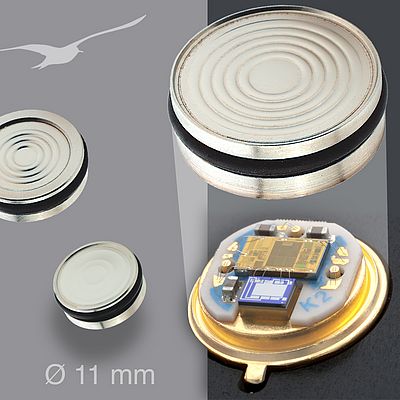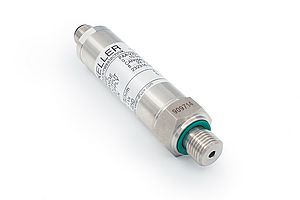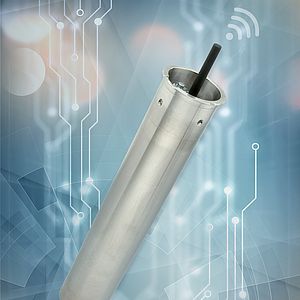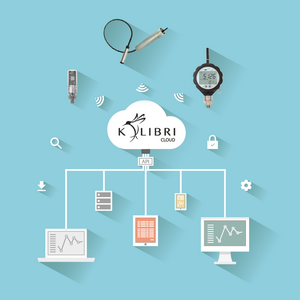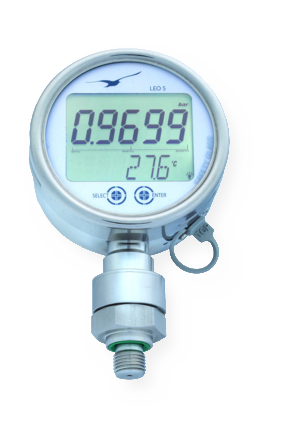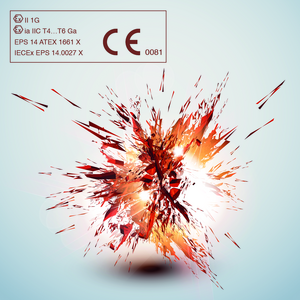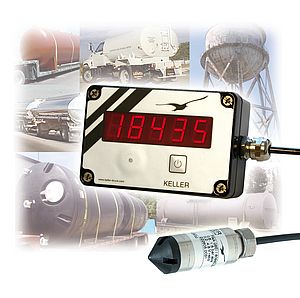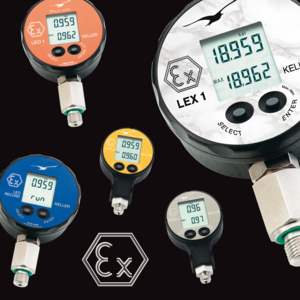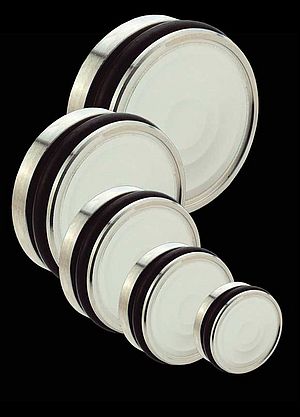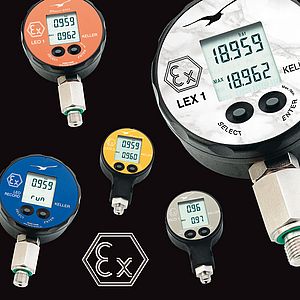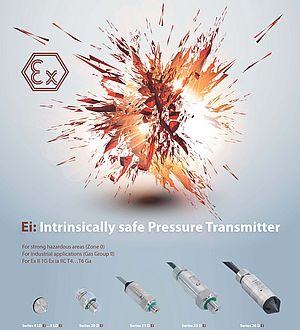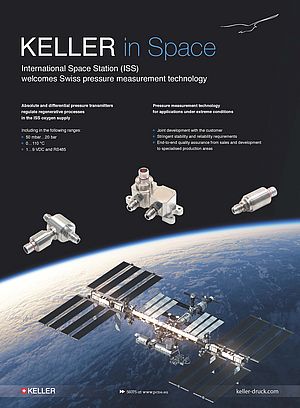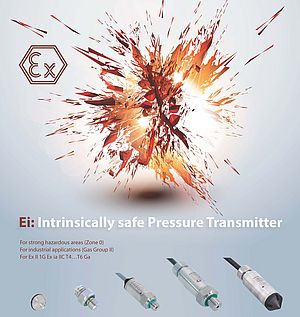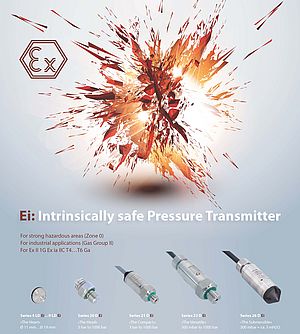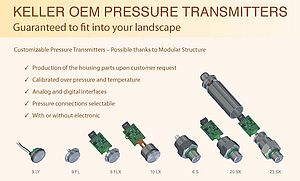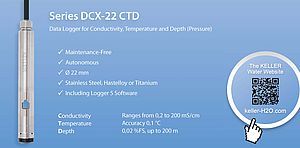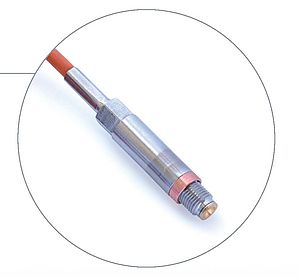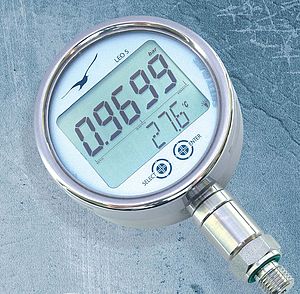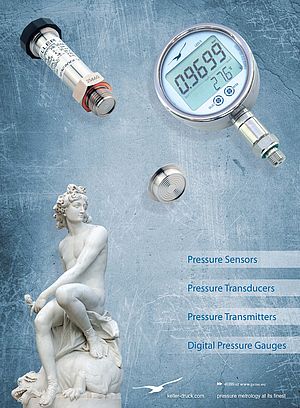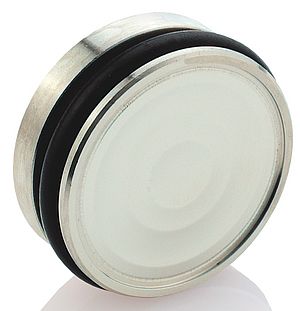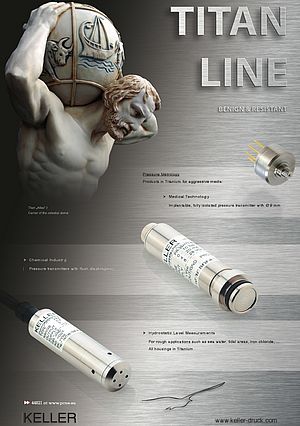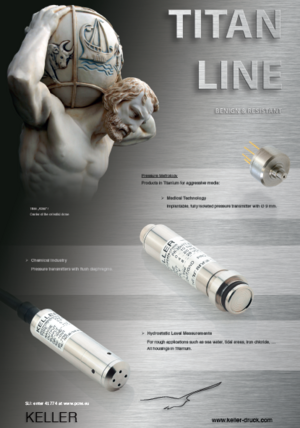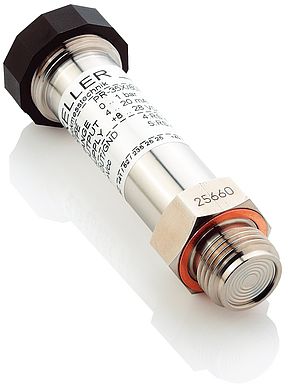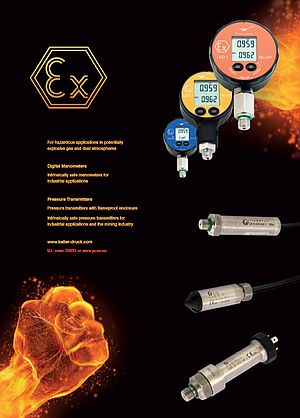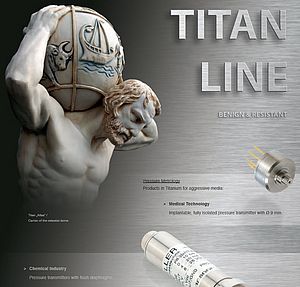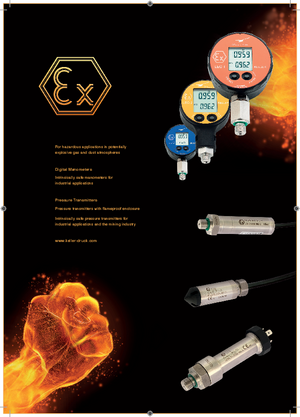Thanks to the Chip-in-Oil (CiO) technology developed at Keller, the trend toward miniaturization is now becoming a reality. In Series 4 LC...9 LC pressure transmitters, the special ASIC for signal processing is fitted directly next to the pressure sensor, in the same housing, under oil, and with the exclusion of air. This yields a host of advantages in terms of application: all the key pressure measurement components are now protected against the risks from humidity and condensation. The interior wiring is implemented with short, lightweight bonding wires, while sintered-in pressure-resistant glass leadthroughs feed the transmitter signals out. Together with the high-grade steel housing, they form a Faraday cage around the measuring system, acting as feedthrough capacitors. This makes the CiO technology absolutely RFI resistant up to field strengths of 250 V/m and for frequencies of up to 4 GHz.
Series 4 LC...9 LC pressure transmitters offer two output signals: a ratiometric analog voltage output and a digital inter-integrated circuit interface (I2C). The ratiometric signal eliminates the need for an expensive voltage reference in the support electronics to the A/D converter, with no additional effort and expense for compensation and calibration. For a voltage supply of 5,0 V, the output signal is specified as 0,5 ... 4,5 V. The transmitters provide constant protection against overvoltage and polarity reversal on all lines up to ±33 VDC.
For years, the I2C interface has been regarded as the serial standard in embedded systems. Up to 128 OEM transmitters in Series 4 LC...9 LC can be addressed successively by one I2C master in order to call up the current pressure and temperature values from the transmitters (slaves). With an I2C output, the pressure transmitters can operate with a voltage supply of only 2,7...3,6 VDC, and they are ready to supply the current measured values 5 ms after switching on. Appropriate ON/OFF operation and low power consumption make these transmitters ideally suited for mobile applications.
With an analog output, the transmitters can be used at temperatures of between -40 °C and +150 °C, and with an I2C output the range is from -40 °C to +80 °C. The full scale pressure ranges for the analog version extend from 2 bar to 1'000 bar, and for the digital version from 2 bar to 200 bar. The internal sampling rate offers a very good dynamic range of 2 kHz. Low power consumption during continuous operation is another benefit. In this regard, the digital version requires less than 3 mA, and the analog version requires about 8 mA.


